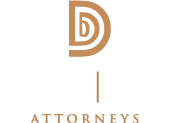If you or a loved one is among the millions of people who do some type of cleaning work for a living – whether as a full-time or part-time job — you know that it can be a back-breaking (or at least back-straining) job. There are other risks as well, as we’ll discuss.
Many of these risks can be lessened by employers who prioritize the safety and well-being of their workers. Sadly, too many don’t. That means you may need to advocate for the things you need to do your job safely – like the proper equipment and protective gear.
Nearly every professional cleaning and housekeeping job can involve hours of bending, stretching, lifting and twisting your body into all kinds of awkward positions. This can lead to any number of musculoskeletal injuries. It often includes having to walk on slippery floors. which means it’s easy to slip and fall. Sturdy, non-slip shoes are an essential part of the job.
Chemical and biological hazards
Cleaning products used in commercial settings are typically very strong. They can cause serious respiratory issues, particularly if you’re using them in an area with poor ventilation – for example, in bathrooms and hotel rooms. Having the correct face mask can help minimize respiratory harm. They can also burn the skin, so wearing well-made, well-fitting gloves is important.
Biological hazards are especially common in health care settings and labs. However, any time you’re emptying trash, you risk coming across a used needle or other potential biological hazard. Again, gloves can help minimize the chances of direct exposure.
Sexual and physical violence
Working in housekeeping and cleaning jobs often means being alone (or nearly alone) in an office or hotel room. Sadly, this makes these workers (particularly women) easy prey – sometimes even from their supervisors and co-workers. Many hotels and other employers equip their cleaning staff with panic buttons they can wear to get help if they’re in danger.
Your right to workers’ compensation
Most Florida employers are required to provide workers’ compensation to any employee who suffers a work-related injury or illness. Don’t let anyone give you false or misleading information about your right to workers’ comp or retaliate against you in any way for seeking what’s rightfully yours. If you have questions or concerns, it’s smart to get legal guidance to protect your rights.

